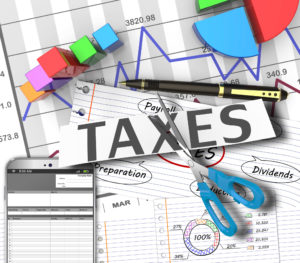
There are several common small business tax myths that could cause you big problems—it’s best to stay informed and talk to your CPA about any concerns you may have.
Running a small business is full of challenges. Some of the most difficult-to-navigate issues include anything involving finances and in particular, tax season. It doesn’t help that there are a number of pervasive myths out there that confuse small business owners when trying to navigate this difficult subject.
Thankfully, we’re here to help clear up some of those myths and get your small business tax plan back on track. Let’s bust these small business tax myths!
You Should Pay Your Taxes Annually
Officially preparing and filing taxes happens during the spring of every year. That said, self-employed individuals and agency owners should make quarterly payments for both federal and state taxes to help mitigate having to pay taxes in one lump sum. Taxes for January, February, and March income are due by April 15th; for April and May it’s due June 17th; for June, July, and August it’s due September 16th; and for September, October, November, and December, it’s due January 20th.
Employee and Self-Employed Taxes Are The Same
Freelancers and small agency owners are going to end up paying more money to the government than the typical employee will. Typically a company is heavily involved in taking taxes out of an employee’s paycheck, which ultimately means that end up having less to pay when taxes are due. On the other hand, a small business has to pay the full amount of social security plus Medicare taxes to the government.
Side Jobs Don’t Require Paying Taxes
Many small business owners end up having to work side jobs or find other ways to create revenue. However, side jobs aren’t immune to being taxed. If you’re earning more than $12,000 in a year, you must pay taxes on all income you make.
You Shouldn’t Worry About Taxes until Tax Season
Make your life much easier by coming up with a year-round strategy for dealing with your taxes. Whether you work with an accountant or are doing your taxes yourself, you should have regular habits in place so that you don’t have to scramble right at the end. Make taxes part of your larger financial strategy and it’ll revitalize the way you run your business.
Spending More Money Gets You a Bigger Tax Break
Sometimes business owners think they need to spend more money before tax season to get bigger breaks. They’ll even accumulate debt just so that they avoid paying more in taxes. This isn’t advisable, and most small business tax experts will say that you should only make purchases that will actually help your business and are a necessity.
Learn More About Tax Prep with The Harding Group
Unlike other accounting firms, The Harding Group will never charge you for consultations and strive for open communication with our clients. We serve clients in Annapolis, Anne Arundel County, Baltimore, Severna Park, and Columbia. If you are ready to take the stress out of tax time as a small business owner, contact us online or give us a call at (410) 573-9991 for a free consultation. Follow us on Facebook, Twitter, YouTube, and LinkedIn for more tax tips.


 Back
Back